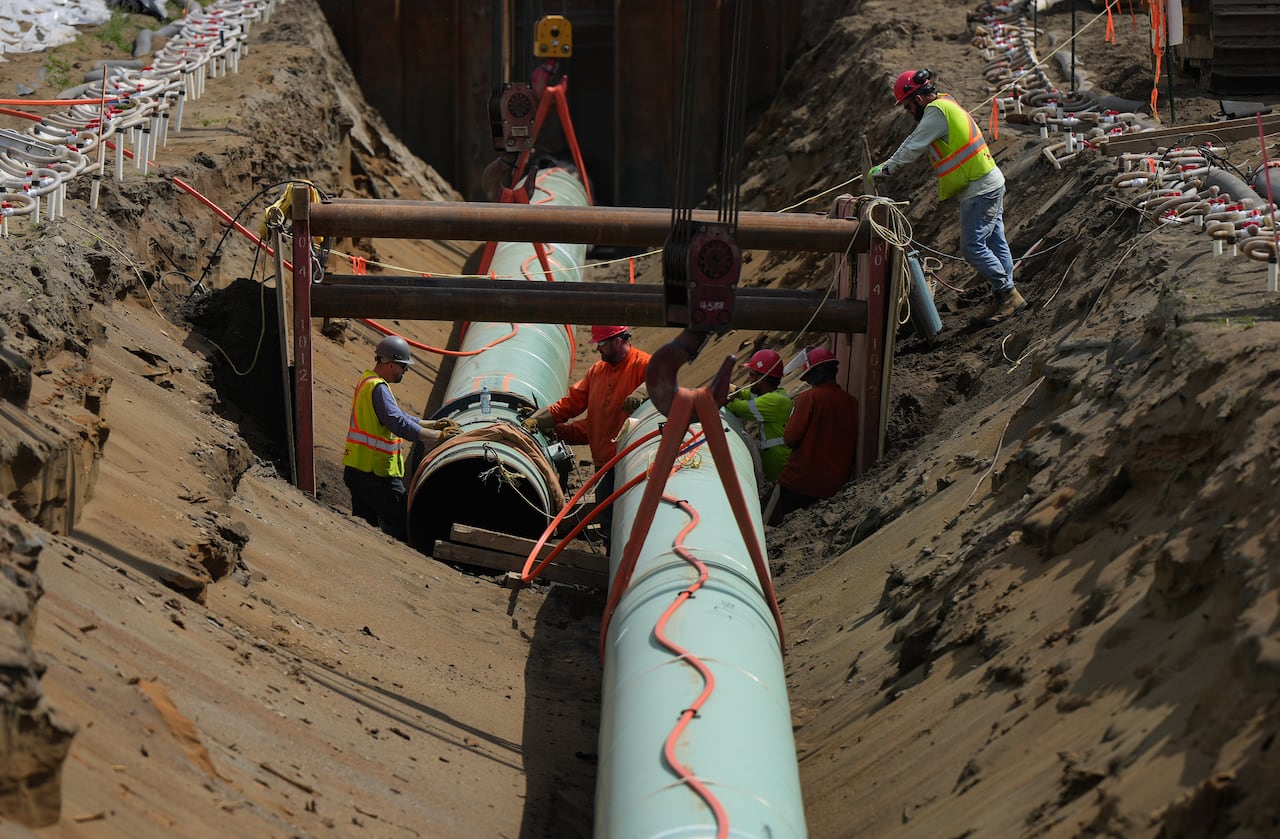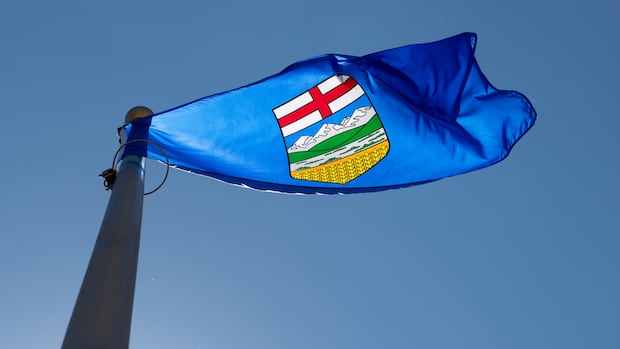Alberta’s government will “end the landlocking” of the oilsands by working with partners to build pipelines to B.C.’s northwest coast and Ontario, Lt.-Gov. Salma Lakhani says in the speech from the throne.
Kicking off a new legislative session on Thursday, the speech outlining the provincial government’s agenda says it has been successful at convincing the rest of Canada of the importance of selling Alberta’s natural resources and recommits the province to doubling oil and gas production by an unspecified timeline. The speech says Alberta’s diplomatic approach to dealing with U.S. tariff threats was a fruitful tack.
“Alberta is winning and will continue to win this battle for our freedom and provincial rights – because your government believes we are on the right side of history and Albertans will not be denied their prosperous future,” the speech says.
The speech says Alberta’s sovereignty “does not mean separation,” and that reaching a “grand bargain” with the federal government to restore economic autonomy is critical.
A Liberal win in April’s federal election stirred separatist sentiments among some Albertans. The discussion has led to a citizen petition that, if successful, could prompt a referendum on Alberta remaining part of Canada.
A pro-separatist group is fighting in court to have a pro-separation referendum question approved by Elections Alberta.
Bill would clarify role in international agreements
Premier Danielle Smith also tabled her government’s first bill of the session, the International Agreements Act.
“Ottawa can sign international agreements with other countries,” Smith said at news conference on Thursday morning. “That’s their right. But this legislation, it makes it clear that those agreements will only become enforceable in Alberta if implemented under provincial legislation.”
The premier signalled the government was eyeing such a bill, modelled after a 25-year-old Quebec law, in a mandate letter to her deputy minister last month.
If passed, the bill would expand an existing piece of Alberta legislation on international trade and investment agreements to cover all international agreements in Alberta’s jurisdiction, or shared national-provincial jurisdiction.
Although Smith did not point to a specific international agreement Canada had signed that Alberta wished to opt-out of, she said timelines to meet climate goals the federal government “arbitrarily arrived at” have harmed Alberta’s economy.
The federal government has said some of the climate goal timelines that Smith finds objectionable are part of its effort to meet its 2015 Paris climate agreement commitments.
A second bill, coming Monday, will order about 51,000 teachers back to work, ending a provincewide strike and lockout that has cancelled classes at public, Catholic and francophone schools.
When asked, neither Smith nor other members of cabinet would give a precise timeline for passing that legislation, nor say when classes would resume.
Smith said the international agreements bill comes before teacher back-to-work legislation because the government established its legislative agenda before it knew teachers would be off the job.
Pipelines
Earlier this month, Premier Danielle Smith announced a $14-million effort to lead a technical advisory group studying a possible oil pipeline route from Alberta to the north coast of B.C. She said she hopes private proponents and First Nations stakeholders would later invest in the project.
In July, Smith and Ontario Premier Doug Ford signed a memorandum of understanding to study potential new pipeline routes and rail corridors between Alberta and Ontario.
Lakhani’s speech says lower oil and gas royalty revenues have put Alberta in a deficit position this year, but the province’s plan to bolster the value of the Heritage Fund and foster economic diversification will leave the province less dependent on those revenues in the future.
“Alberta is already an energy superpower,” the speech says. “Alberta will now also become an AI superpower, making our province a world leader in arguably the world’s two most important commodities – energy and computing power.”
The speech doubles down on Smith’s mandate to her jobs, economy, trade and immigration minister to seize more provincial control over immigration to the province.
 Workers lay pipe during construction of the Trans Mountain pipeline expansion on farmland, in Abbotsford, B.C., on Wednesday, May 3, 2023. (Darryl Dyck/The Canadian Press)
Workers lay pipe during construction of the Trans Mountain pipeline expansion on farmland, in Abbotsford, B.C., on Wednesday, May 3, 2023. (Darryl Dyck/The Canadian Press)
“Using Alberta’s constitutionally protected provincial rights, the government of Alberta will return to a more stable number of primarily economic migrants, so that newcomers come here to work and contribute as they have historically done, while Canadian citizens living in Alberta are given first priority to the social programs, jobs and opportunities our economy creates,” the speech says.
The government has already said it plans to introduce a bill to modify Alberta driver’s licences and identification cards to add a marker for Canadian citizens by next year.
The speech recommits the government to existing announcements, such as designing and investing in a passenger rail system over the coming decades, hiring hundreds of new police officers, continuing the break up and reorganization of the administrative bodies running health care, and a seven-year plan to construct and modernize 130 school buildings.
“The outdated model of building massive new multi-billion dollar hospitals that take half a decade or more to build – and then are almost always underused when opened – must end,” Lakhani says.

